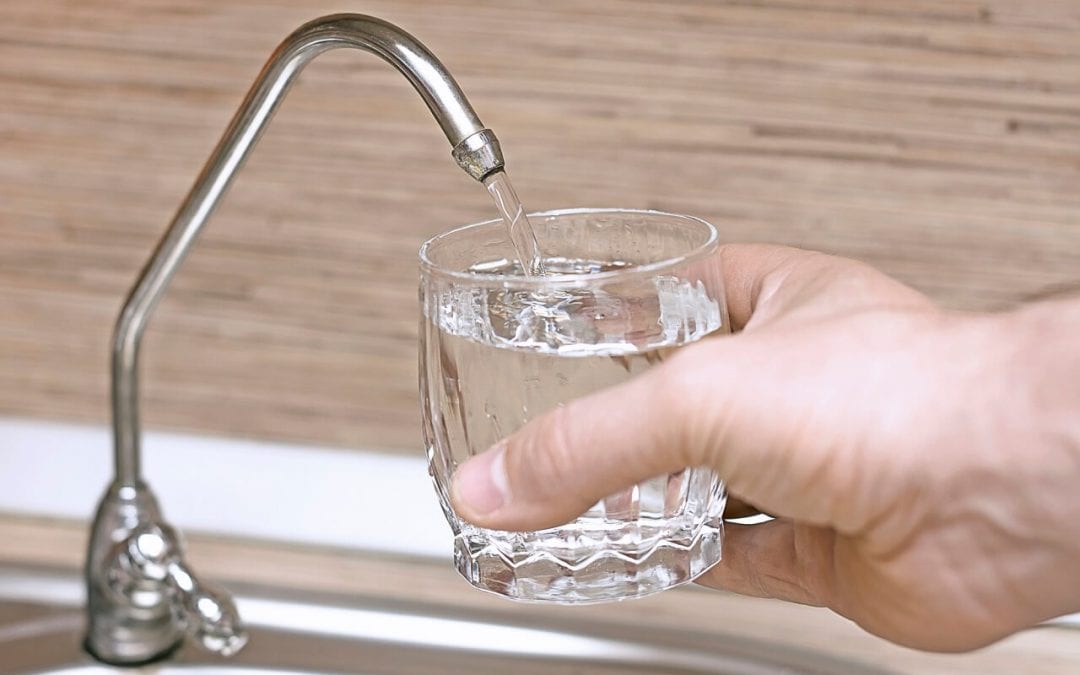4 Types of Home Water Filters
1. Sediment Filter
As the name suggests, a sediment filter reduces sediment like silt, sand, and rust. Although it can be used alone, it’s best used with other filters to enhance results.
A sediment filter can have a micron rating of anywhere between 1 and 100 microns. Therefore, it will only filter contaminants larger than its micron specifications, while the rest will pass through and end up in the drinking water.
Pros:
• Affordable
• Easy to replace the filter
• Variety of micron ratings to choose from
Cons:
• Not useful for contaminants smaller than 1 micron
• Does not remove chemicals, metals, viruses, or bacteria
2. Granular Activated Carbon Filter
A granular activated carbon filter is an excellent option, especially for removing organic chemicals. The filter can also get rid of chemicals such as chlorine and hydrogen sulfide, which give water an unpleasant odor and taste.
The GAC filter works by absorbing particles larger than the size of its pores as water flows through it.
Pros:
• Low cost
• Retains essential minerals
• Requires no power supply
Cons:
• Doesn’t remove metals and salts like lead and fluoride
• Doesn’t remove viruses or bacteria
3. Ion Exchange Water Filter
Ion exchange filters reduce water hardness and alkalinity. Typically, an ion-exchange filter has a long column containing beads of a polymer resin. Once water passes through, a chemical reaction takes place that removes unwanted dissolved ions from the water.
Ion exchange processes are of two types: cation exchange and anion exchange. The cation exchange gets rid of positively charged ions, while the anion exchange process eliminates the negatively charged ions. Besides water softening, ion exchange can also remove heavy metals.
Pros:
• Softens hard water
• Removes dangerous metals like lead
Cons:
• Doesn’t remove bacteria
• Does not get rid of organic contaminants
4. Advanced Types of Water Filters: Reverse Osmosis
A reverse osmosis filter is quite different from other types of home water filters. As the name suggests, it is the opposite of the conventional osmosis process. This filter contains a semipermeable membrane that blocks contaminants while allowing water molecules to flow through it.
The membrane can have pores as tiny as 0.0001 microns, making it possible to get rid of about 99% of contaminants, including bacteria. Once pollutants accumulate on the membrane, they are flushed away as wastewater, leaving a clean RO membrane.
Since the membrane doesn’t remove chlorine, this type of filter is best used in combination with an activated carbon filter.
Pros:
• One of the most thorough kinds of water filters
• Removes fluoride, which most filters don’t
• Can significantly reduce dissolved contaminants
Cons:
• Slow rate of filtration
• High costs
• Removes essential minerals
• Wastes water
It is best to find out the state of your drinking water supply before choosing a type of water filter. Once you know which contaminants need to be removed, you’ll have a better idea of what kind of filter you need.
Sevens Property Inspections provides home inspection services, including home water testing, to New York City. Contact us to schedule an appointment.

